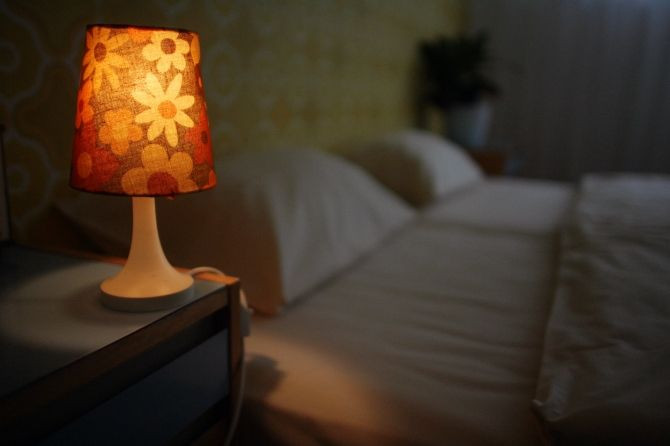Lights on at Night May Cause Depression but Effects Can Be Reversed

Light at night, from a television screen, computer monitor or traffic lights can cause depression that can be reversed to some extent just by getting back to a regular day-night cycle and reducing the amount of light at night, a new study says.
"The good news is that people who stay up late in front of the television and computer may be able to undo some of the harmful effects just by going back to a regular light-dark cycle and minimizing their exposure to artificial light at night. That's what the results we found in hamsters would suggest," said Tracy Bedrosian, doctoral student in neuroscience at Ohio State University and lead author of the study, in a statement.
Researchers studied the effects of light at night on female hamsters. One set of hamsters were kept in cages that had a regular cycle of day-night simulation with 16 hours of daylight and 8 hours of total darkness. The other set of hamsters were kept in cages that had 16 hours of daylight but 8 hours of dim light (equivalent to light from T.V screen or a computer monitor in dark room).
These hamsters were then kept in normal day-night conditions for one week, two weeks or four weeks.
Researchers found that hamsters exposed to dim light at night did poorly on behavior tests and were depressed; showed less activity during tasks and displayed little interest in eating foods that were otherwise desirable.
But, switching the night light with total darkness reversed the signs of depression in hamsters.
Researchers then studied the brains of these hamsters and found that there were many changes in the hippocampus- a region of brain that is associated with depression.
Also, researchers found that a gene for a key protein was over-expressed in these hamsters. The protein tumor necrosis factor, or TNF, belongs to a group of proteins called as cytokines that are produced by the body as a response to external threat or an injury.
"Researchers have found a strong association in people between chronic inflammation and depression," said Randy Nelson, professor of neuroscience and psychology at OSU and an author of the study.
In a second part of the study, hamsters exposed to dim lights were given XPro1595. – a drug that negates the effects of TNF. Researchers found that these hamsters didn't show depressive symptoms anymore.
The present study was published in the journal Molecular Psychiatry.



























